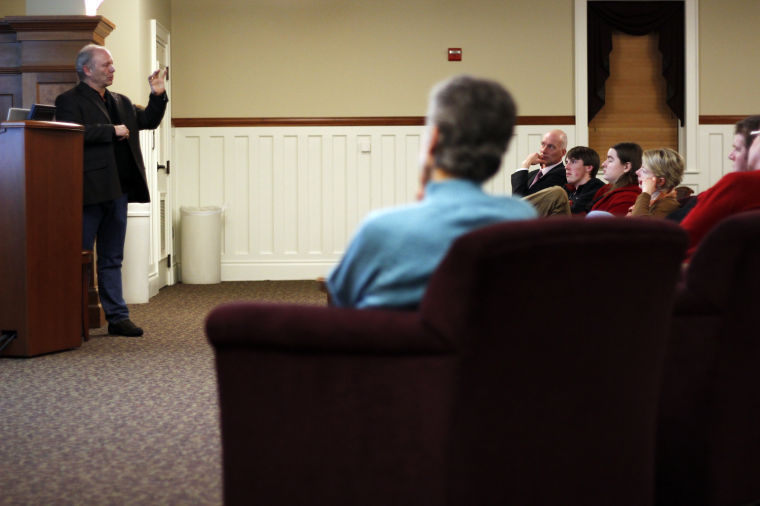‘Ancestral ghosts’: Researcher explains how environmental factors affect genes across generations
Professor Michael Skinner discusses his research on ‘ancestral ghosts’ in the Honors College Lounge, Monday, Feb. 10.
February 11, 2014
A grandmother’s exposure to a toxin could affect her grandchildren’s health decades later, a WSU researcher said.
Michael Skinner, a professor in the School of Biological Sciences, spoke yesterday evening in the Honors College lounge about the ways in which environmental factors can cause disease across generations.
The lecture was titled “Environmentally Induced Epigenetic Transgenerational Inheritance of Disease and Evolution: Ancestral Ghosts and Your Genome.”
Ancestral ghosts, Skinner explained, are the results of changes to one’s parents’ genes.
“This is an area of science that’s been ignored because of genetics,” he said. “In a feature article I was branded an epigenetic heretic. This is not necessarily a bad thing.”
Epigenetics is the study of factors that affect gene function without altering DNA, what Skinner called “the building blocks of genetic determinism.”
Skinner said instances of many diseases are increasing rapidly, and environmental factors are the reason.
“It’s a small piece of a much bigger story,” he said.
In a study that involved lab rats, Skinner concluded 91 percent of male rats that were exposed to a model endocrine disruptor developed tumors and prostate, kidney and immune diseases.
Contaminants like plastic, jet fuel and insecticides can be passed on to an individual’s offspring, he said. Dioxin, for example, can stay in the body for 25 years.
Skinner said fetuses are most vulnerable during early development, at the point when their sex is determined. A female’s nutrition and exposure to chemicals during gestation are main contributors to disease, he said.
Freshman biochemistry major Karena Gutierrez said she became interested in epigenetics in high school, when she discussed the topic with her father.
“I came firsthand from someone who’s involved in that research,” Gutierrez said. “It came full circle with the conversations that my dad and I had.”
Russell Wilson, a sophomore microbiology and genetics major, said he’s involved in his own research with epigenetics. He said Skinner’s lecture was insightful because it presented research different from his own.
“It’s interesting how far we’ve progressed in science and how we are continuing to progress,” Wilson said.















